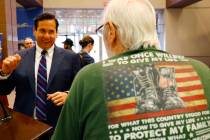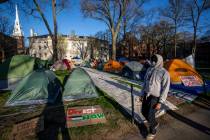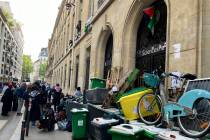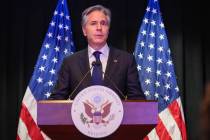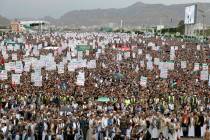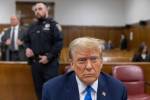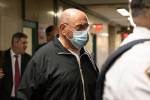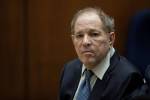Court upholds Kincaid-Chauncey’s conviction
Former Clark County Commissioner Mary Kincaid-Chauncey’s attempt to clear her name in connection with her conviction on public corruption charges failed at the appellate level Friday.
The 9th U.S. Circuit Court of Appeals rejected Kincaid-Chauncey’s appeal and found that the federal judge presiding over her trial acted appropriately when he prohibited certain witnesses from testifying and when he instructed the jury on the definition of quid pro quo.
Kincaid-Chauncey and her co-defendant, former Commissioner Dario Herrera, were convicted in May 2006 of charges related to accepting bribes from then-strip club owner Michael Galardi. In exchange for cash payments, according to prosecutors, the two voted favorably on matters that helped advance Galardi’s business empire.
“We are obviously pleased with the 9th Circuit’s ruling that the trial judge did not err and that former Commissioner Kincaid-Chauncey’s conviction should stand,” said U.S. Attorney for Nevada Greg Brower. “This effectively marks the end of a very sad chapter in the history of Clark County.”
Kincaid-Chauncey was released from federal prison in December and transferred to a halfway house; she will be formally released from the system in March after serving a 30-month stint. She was unavailable for comment Friday.
Her appeal was based on two arguments: U.S. District Judge Larry Hicks deprived her of a fair trial when he rejected proposed witnesses, and he should have instructed the jury to identify a quid pro quo, meaning Kincaid-Chauncey accepted the money with an intent to work on Galardi’s behalf.
During the eight-week trial, Galardi, who pleaded guilty and was one of the government’s key witnesses, was accused of lying on the witness stand. He testified that he gave money to numerous public officials. Kincaid-Chauncey hoped to put those officials on the stand with hopes of showing the jury that Galardi lied about the payments to them, and to her.
The 9th Circuit ruling stated that a witness can be impeached only on information provided during direct examination.
Galardi listed payments he made to seven officials during cross-examination, which means Kincaid-Chauncey was not entitled to call witnesses who could attack his credibility.
Hicks ruled that the public officials might have disputed the amount of money they received from Galardi, but they would have testified the payments were legal campaign contributions.
“Allowing the defendant to call the mayor, members of the city council, judges and other public officials to testify would have created a huge sideshow to what was already a trial of notoriety,” the appeals court ruling states.
Along with Galardi, Herrera and Kincaid-Chauncey, the investigation snared former Clark County commissioners Erin Kenny and Lance Malone. Galardi and Kenny pleaded guilty and received 30-month sentences. Herrera received a 51-month sentence and Malone, who pleaded guilty on the eve of his trial, received a six-year term.
During the February 2008 appeals court hearing, Federal Public Defender Franny Forsman argued that jurors might have believed that Galardi lied when he said he delivered cash to Kincaid-Chauncey if they heard from the other officials that his allegations were not true.
“The jury was entitled to know those things were false. The jury only got to hear the allegations,” Forsman said. “I’m very curious why the government would put a perjurer on the stand.”
Forsman also told the appeals court panel that Kincaid-Chauncey admitted to accepting two contributions from Galardi, one to help with the cost to send her grandson to Olympic ski school and another for her son’s Las Vegas City Council campaign.
Galardi testified during the 2006 trial that he also gave Kincaid-Chauncey $5,000 on two other occasions. But Forsman said the commissioner denied receiving that money and did not consistently vote in Galardi’s favor. The argument was that quid pro quo could not have been proved.
The appeals court stated that jurors needed to consider only Kincaid-Chauncey’s state of mind when she accepted cash from Galardi and that she failed to disclose cash payments when she voted on matters affecting his business. They did not need to identify a particular act Kincaid-Chauncey committed in exchange for the money.
In the past, Kincaid-Chauncey has said she will continue to fight the conviction to clear her name and restore her right to vote.
Contact reporter Adrienne Packer at apacker@reviewjournal.com or 702-384-8710.








